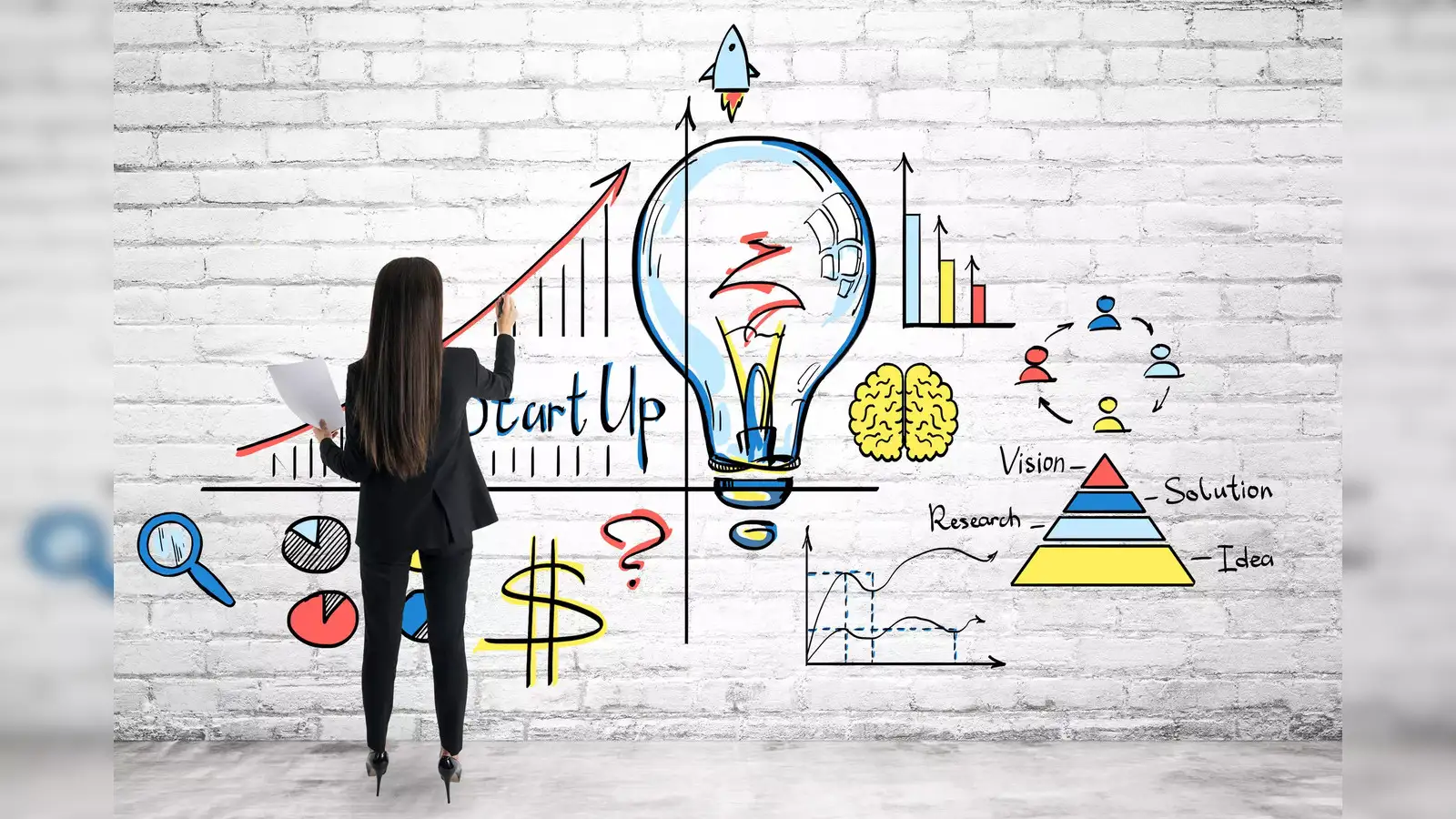India’s Startup Ecosystem Growth – In-depth Analysis & Critical Insights
India's startup ecosystem has grown into the third largest globally, fueled by government policies, digital penetration, foreign investments, and a young entrepreneurial population. However, despite this remarkable progress, challenges persist, including regulatory bottlenecks, funding disparities, and infrastructural limitations. This analysis examines India's startup landscape through key economic, policy, social, and global factors, offering a critical perspective on its strengths, weaknesses, and future trajectory.
Key Growth Drivers of India’s Startup Ecosystem
India’s rapid startup growth has been multidimensional, driven by a mix of policy interventions, technological advancements, and evolving consumer behavior.
The Government of India launched Startup India to foster entrepreneurship and innovation. The initiative provides multiple benefits to startups.
| Feature | Details |
|---|---|
| Ease of Doing Business | Simplified compliance, self-certification, and single-window clearances for startups |
| Tax Benefits | Eligible startups enjoy 3 years of tax exemptions under the scheme |
| Funding Support | ₹10,000 crore Fund of Funds for Startups (FFS) to support early-stage startups |
| Sector-Specific Policies | Dedicated policies for Biotechnology, Agriculture, Renewable Energy, AI, and Fintech |
| Women Entrepreneurship | 73,151 startups have at least one-woman director, showcasing increased women-led startups |
| Employment Generation | Startups have created 16.6 lakh direct jobs across industries |
Flagship Schemes Under Startup India
| Scheme | Objective |
|---|---|
| Startup India Seed Fund Scheme (SISFS) | Provides early-stage funding for startups to develop prototypes and enter markets |
| Credit Guarantee Scheme for Startups (CGSS) | Offers collateral-free loans to startups |
| Fund of Funds for Startups (FFS) | ₹10,000 crore investment in venture capital firms to support startups |
Additional Government Initiatives
| Initiative | Purpose |
|---|---|
| BHASKAR (Bharat Startup Knowledge Access Registry) | A national digital platform connecting startups, investors, and policymakers. |
| Startup Mahakumbh | A large-scale event to promote networking and investment opportunities for startups. |
| Atal Innovation Mission (AIM) | Encourages innovation through incubators, research grants, and school-level programs |
Economic and Digital Infrastructure
- Demographic Dividend: India has the world’s largest young workforce (~66% under 35 years old), creating a strong base for digital entrepreneurship.
- Digital Revolution: Initiatives like Jio's affordable internet (2016), UPI (Unified Payments Interface), and Aadhaar-enabled services have catalyzed fintech, e-commerce, and AI-driven startups.
- Consumer Market Expansion: India’s growing middle class (~450 million people) drives domestic demand for e-commerce, fintech, and mobility startups.
- Funding Growth: India has attracted record foreign direct investments (FDI) in startups, with $40+ billion in VC funding between 2019-2023.
Government Policies and Incentives
- Startup India Initiative (2016): A flagship program aimed at reducing compliance burdens, offering tax exemptions, and boosting funding through the ₹10,000 crore Fund of Funds (FFS).
- Sector-Specific Boosts:PLI schemes (Production-Linked Incentives) in manufacturing and deep-tech have encouraged innovation in AI, EVs, and Agri-Tech.
- Credit Support: Introduction of Credit Guarantee Scheme (CGSS) for collateral-free loans for startups.
- Ease of Doing Business:80% reduction in patent registration costs, simplification of GST filing, and faster company incorporation processes.
International Recognition & Influence
- Indian Startups Going Global: Zomato, Ola, Nykaa, and BYJU’S have expanded overseas, proving the scalability of Indian innovation.
- India’s Leadership in Fintech: The success of UPI has led to its adoption in countries like UAE, Singapore, and France, positioning India as a fintech powerhouse.
- Growing Global Investments: Major funds like SoftBank, Sequoia, Tiger Global, and Accel have poured billions into Indian startups, signaling global confidence.
Critical Analysis of Strengths and Weaknesses
While India’s startup ecosystem is expanding rapidly, several structural weaknesses persist that could hinder long-term sustainability.
Strengths of India's Startup Ecosystem
| Factor | Strength |
|---|---|
| Large Consumer Base | ~1.4 billion people provide a massive testbed for new technologies and digital products. |
| Cost Advantage | Lower operational costs in India compared to the US or Europe encourage global firms to invest. |
| Innovation in Emerging Sectors | Health-tech, Agri-tech, AI, and SaaS startups are solving grassroots challenges. |
| Robust Fintech Growth | India’s fintech adoption rate (87%) is the highest in the world. |
| Government Support | Policy initiatives like Startup India, PLI Schemes, and Digital India reduce entry barriers. |
Weaknesses and Bottlenecks
| Factor | Challenge |
|---|---|
| Regulatory Complexity | Despite simplifications, startups face challenges in taxation (GST), investment approvals (FEMA), and IPO compliance. |
| Funding Gaps for Early-Stage Startups | While Series A+ startups receive strong VC backing, pre-seed and seed-stage funding remains weak. |
| Bureaucratic Hurdles | Government funds like FFS (Fund of Funds) have low disbursal rates, delaying financial aid. |
| Infrastructure Deficiency | Tier-2 and Tier-3 cities lack startup hubs, slowing the decentralization of entrepreneurship. |
| Talent Drain to Global Markets | Many AI, Blockchain, and SaaS founders relocate abroad due to better incentives in the US, UK, and UAE. |
Startup Ecosystem: Technological Advancements
Emerging Technologies in Indian Startups
| Technology | Applications |
|---|---|
| Artificial Intelligence (AI) | Used in health-tech, automation, SaaS, and fintech |
| Blockchain | Secure financial transactions, smart contracts, crypto startups |
| Internet of Things (IoT) | Smart cities, home automation, and Agri-Tech solutions |
| Big Data & Analytics | Used in e-commerce, logistics, and marketing intelligence |
| Biotechnology & Health-Tech | Genomics, pharma startups, AI-based diagnostics |
Comparative Analysis: India vs Other Global Startup Hubs
| Metric | India (2025) | USA | China | Israel |
|---|---|---|---|---|
| Startup Count | 1.59 lakh | 72,000+ | 80,000+ | 8,000+ |
| Unicorns | 100+ | 850+ | 320+ | 120+ |
| VC Funding (2023) | $40B+ | $144B | $84B | $20B |
| Ease of Doing Business | Rank 63 | Rank 6 | Rank 31 | Rank 35 |
| Startup Survival Rate | ~20% | ~50% | ~40% | ~45% |

International Impact of Indian Startups
- Global Expansion: Indian startups like Zomato, Ola, and Nykaa are expanding into global markets.
- Foreign Investments: India has attracted global venture capital (VC) and private equity (PE) investments, making it an investment hotspo.
- Affordable Tech Solutions: India's innovations in UPI, Aadhaar, and Digital Payments have influenced other countries.
- India’s Role in Silicon Valley: Many Indian-origin founders (e.g., Sundar Pichai, Satya Nadella) lead major global tech firms, demonstrating India's global influence.
Key Takeaways
- India has the world’s fastest-growing startup ecosystem but lags in survival rate (~20%), meaning many startups fail early due to funding gaps and regulatory challenges.
- China dominates in deep-tech, AI, and hardware startups, whereas India excels in fintech and SaaS.
- USA leads in VC funding, while India still catches up in late-stage funding availability.
- Israel outperforms in R&D and high-tech innovation due to strong government backing.
The Road Ahead: India's Vision 2047
Key Policy Recommendations for Sustained Growth
Strengthening Seed-Stage Funding:
- India needs a dedicated ₹50,000 crore startup growth fund to support early-stage startups.
- More participation from domestic institutional investors, pension funds, and public-private partnerships (PPPs) is essential.
Decentralizing Startup Growth Beyond Metros:
- Special tax incentives for startups in Tier-2 & Tier-3 cities can bridge the rural-urban innovation divide.
- Building 100+ startup incubation hubs across smaller cities can improve infrastructure.
Boosting R&D & Deep-Tech Investments:
- China invests 5% of its GDP in R&D, whereas India invests only 0.65%—this must increase.
- More government-backed AI, robotics, and quantum computing grants are needed.
Encouraging Global Expansion of Indian Startups:
- The government can facilitate international partnerships through "Startup India Global Acceleration Programs".
- Strengthening cross-border IPO norms to allow Indian startups to list internationally.
The Future of Indian Startups: Potential Trends
- Rise of "Soonicorns" (Soon-to-be Unicorns): Over 200+ Indian startups are expected to reach $1B+ valuation by 2030.
- Deep-Tech & AI Boom:India’s AI industry could reach $1 trillion by 2035, fueling innovation across sectors.
- Green-Tech & Sustainability Startups: As ESG (Environmental, Social, Governance) becomes a priority, climate-tech, EVs, and renewable energy startups will dominate.
- More IPOs & Public Listings: With Zomato, Nykaa, and Paytm IPOs, more startups will opt for public listing.
Key Challenges
| Challenge | Description |
|---|---|
| Regulatory Complexity | Multiple compliance requirements can slow down startup growth |
| Funding Gaps | Many early-stage startups struggle with securing funding despite government initiatives |
| Infrastructure Issues | Lack of startup hubs in Tier-2 and Tier-3 cities limits opportunities |
| Talent Retention | Brain drain: Many skilled engineers and entrepreneurs move abroad for better opportunities |
| Intellectual Property (IP) Protection | Weak IP laws can hinder deep-tech and biotech startups |
The Path to a Global Startup Superpower
India’s startup ecosystem is at a crucial inflection point. While it has emerged as a top global player, it needs structural reforms, better funding, and deeper policy interventions to ensure long-term success. If India leverages its demographic strengths, boosts innovation in deep-tech, and bridges funding gaps, it can become the world's leading startup hub by 2047.













